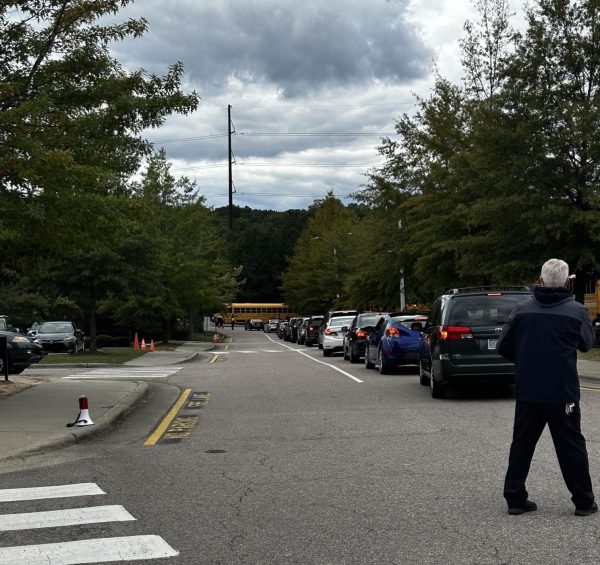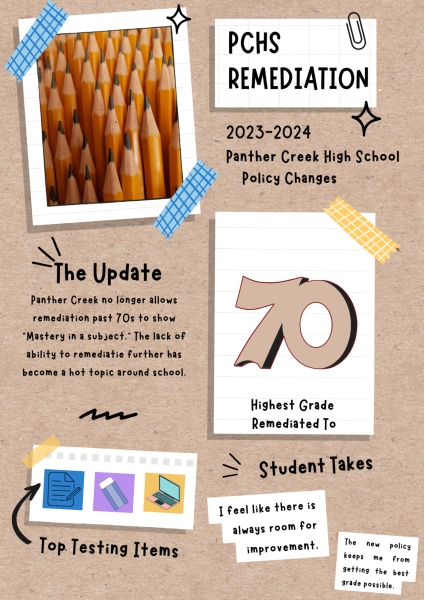First vs Second Semester AP Classes
 Many students here at Panther Creek take Advanced Placement classes, more commonly known as AP classes. These include such courses like calculus, psychology, environmental science, art history, music theory, world history, and chemistry. AP exams occur every year during May, on the same dates for every student regardless of which semester they took the actual class. This presents a complicated problem for both teachers and students depending on which semester the class is in. Many may have the same question: is one semester better than the other for taking an AP class?
Many students here at Panther Creek take Advanced Placement classes, more commonly known as AP classes. These include such courses like calculus, psychology, environmental science, art history, music theory, world history, and chemistry. AP exams occur every year during May, on the same dates for every student regardless of which semester they took the actual class. This presents a complicated problem for both teachers and students depending on which semester the class is in. Many may have the same question: is one semester better than the other for taking an AP class?
We asked a few students who are experienced with taking AP classes.
In Mark Vitshteyn’s opinion, it is better to have AP classes in the second semester so that you don’t have to study as much. This is due to the fact that the class is closer to the date of the exam, so you are being taught the material right up until the exam. Neil George had a similar opinion, stating that second semester classes make it so you do not have to spend as much time studying on your own.
Other students agreed that having AP classes in the first semester means that it is harder to remember the content and you will have to spend a lot of your own time restudying. This can cause stress for students during this time, such as Mark who had AP U.S. History first semester. “I’m really scared about studying for APUSH because I feel like I forgot everything,” he said.

But the second semester classes aren’t necessarily easier. Depending on the semester, teachers may have more or less time to teach all of the content in the course. “Me, personally, I think the second semester classes are much faster, and first semester was very mellow and easy going,” Neil said. During second semester, there is typically not enough time to teach every single unit in the course, and teachers may have to go through units much quicker than their semester 1 counterparts. In Mark’s experience, “I realized for APHUG (AP Human Geography), we did, like, 4 units in like 4 weeks which is like, super insanely fast.”
Even Mr. Hampton, who teaches AP Physics 1, said “most definitely I’ve got to cram a lot more in the second semester with a smaller amount of time than the first semester.” In regards to how the timing of the class relates to success on the AP exams, he expressed that there are pros and cons of each.

First semester has the advantage of more time to learn the material but a longer gap between learning it and the actual exam, making it so students will have to make time to study on their own later on. Second semester has the advantage of being closer to the exams so the material is fresh in students’ minds, but the con of the content being rushed in order to cover everything before the exam. “I think I lean more towards the kids in the spring and the freshness of it being towards their advantage,” Mr. Hampton says.
He even had a specific suggestion that could lessen the impact of these problems. “I would really like them to move the winter break to the actual holidays so we’re done with the semester in, like, december and that would give me an extra like two three weeks, would work much better for all these AP classes, I would imagine.”
It is difficult to say that one semester is objectively better for taking an AP class, but students and teachers can do their best to plan accordingly with the time that they are given.
Good luck to all students taking AP exams!






